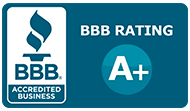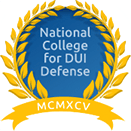Former Middlesex County Prosecutors With Exceptional Qualifications For Ensuring You Avoid A Conviction For Shoplifting in Middlesex County
 If you have been charged with shoplifting anywhere in Middlesex County, NJ, the experienced criminal defense lawyers at the Law Offices of John F. Marshall can help you. This is particularly true if you are facing shoplifting charges in East Brunswick, Woodbridge, and Edison, since we not only been defending shoplifting charges there for decades but have also served as the prosecutor in these towns. We know what it takes to avoid a conviction following an arrest at Woodbridge Center Mall, Menlo Park Mall, Brunswick Square Mall, or another retailer in Middlesex County, and this is a very important consideration given the impact a shoplifting conviction can have on your ability to obtain employment, get a mortgage, secure a profession license, or even remain in the country if you are not a United States citizen. There is little doubt that hiring an attorney who is accomplished in defending shoplifting charges is your best option for protecting your future.
If you have been charged with shoplifting anywhere in Middlesex County, NJ, the experienced criminal defense lawyers at the Law Offices of John F. Marshall can help you. This is particularly true if you are facing shoplifting charges in East Brunswick, Woodbridge, and Edison, since we not only been defending shoplifting charges there for decades but have also served as the prosecutor in these towns. We know what it takes to avoid a conviction following an arrest at Woodbridge Center Mall, Menlo Park Mall, Brunswick Square Mall, or another retailer in Middlesex County, and this is a very important consideration given the impact a shoplifting conviction can have on your ability to obtain employment, get a mortgage, secure a profession license, or even remain in the country if you are not a United States citizen. There is little doubt that hiring an attorney who is accomplished in defending shoplifting charges is your best option for protecting your future.
Highly Talented Middlesex County Shoplifting Attorneys at Our Law Firm
You have undoubtedly heard plenty of hollow statements about why you should hire a particular attorney. What you need to look for is actual facts concerning experience and our firm has credentials that are clearly unparalleled in this respect, including:
- 15 attorneys that practice exclusively in criminal defense. We specialize in this area of law, which is important, since this focus allows us to not only fully develop our skills to help those facing criminal charges but also to concentrate on building relationships needed to effectively navigate the court system.
- Over 200 years of combined experience. We don’t believe there is another law office in the state, let alone Middlesex County, with this level of experience.
- Former prosecutors on staff, including an ex-director at the Middlesex County Prosecutor’s Office and a member who served in this role in Edison, Woodbridge, New Brunswick, North Brunswick, Piscataway, Sayreville, East Brunswick, and South Brunswick. Other members of our team include a former director of the Domestic Violence Unit, Major Crimes Bureau, Juvenile Division, and even an entire trial division.
- Certified criminal trial attorneys. Less than two percent of the lawyers licensed in New Jersey have earned this honor.
- A track record of avoiding convictions for individuals charged with shoplifting that spans decades
An attorney is available 24/7 in our Edison Office or New Brunswick Office to conduct a free initial consultation. Call us at 732-246-7126 or 732-248-7675 to speak to one of our lawyers immediately.
New Jersey Shoplifting Law: N.J.S.A. 2C:20-11
In New Jersey, N.J.S.A. 2C:20-11 provides that shoplifting occurs wherever someone commits any of the following:
- For any person purposely to take possession of, carry away, transfer or cause to be carried away or transferred, any merchandise displayed, held, stored or offered for sale by any store or other retail mercantile establishment with the intention of depriving the merchant of the possession, use or benefit of such merchandise or converting the same to the use of such person without paying to the merchant the full retail value thereof.
- For any person purposely to conceal upon his person or otherwise any merchandise offered for sale by any store or other retail mercantile establishment with the intention of depriving the merchant of the processes, use or benefit of such merchandise or converting the same to the use of such person without paying to the merchant the value thereof.
- For any person purposely to alter, transfer or remove any label, price tag or marking indicia of value or any other markings which aid in determining value affixed to any merchandise displayed, held, stored or offered for sale by any store or other retail mercantile establishment and to attempt to purchase such merchandise personally or in consort with another at less than the full retail value with the intention of depriving the merchant of all or some part of the value thereof.
- For any person purposely to transfer any merchandise displayed, held, stored or offered for sale by any store or other retail merchandise establishment from the container in or on which the same shall be displayed to any other container with intent to deprive the merchant of all or some part of the retail value thereof.
- For any person purposely to under-ring with the intention of depriving the merchant of the full retail value thereof.
- For any person purposely to remove a shopping cart from the premises of a store or other retail mercantile establishment without the consent of the merchant given at the time of such removal with the intention of permanently depriving the merchant of the possession, use or benefit of such cart.
Penalties for Shoplifting
The degree of shoplifting offense an individual faces and the related penalties depends on the amount of merchandise allegedly stolen. If the full retail value of the merchandise is $75,000 or more, this is considered a second degree shoplifting offense. Also, if the offense is committed in conjunction with or in furtherance of a full retail theft enterprise and the merchandise is valued at $1,000 or more, this will also be a second-degree crime. Next, it is a third degree shoplifting offense if the full retail value of the stolen merchandise is over $500 but less than $75,000. If the merchandise is valued between $200 and $500, this is considered a fourth degree shoplifting. Finally, if the merchandise is valued at less than $200, this is a disorderly persons offense.
Defenses To Shoplifting
As with any criminal legal matter, there are potential defenses that can be presented in response to a shoplifting charge. It is important to understand that not every shoplifting case is the same, so the matter of whether you have a viable defense available to you will depend on the specific facts of your case. Only an experienced Middlesex County criminal defense attorney will be able to evaluate your case and determine 1. whether there are potential defenses that can be raised on your behalf and 2. the likelihood that they will be successful. Some potential defenses to a shoplifting charge that can be presented in your case include:
- Lack Of Intent. To be found guilty of a shoplifting charge in Middlesex County, the prosecutor will have to prove that you intended to take an item from its rightful owner with the intent to deprive them of ownership. If you have been charged with shoplifting and it has been claimed that you altered a label or price of an item, the prosecutor must show that you did so with the intent to deprive the owner of all or some of the value of the item. In either case, if the prosecutor cannot show through the facts and evidence that you intended to shoplift, you may be successful in having the charge dismissed.
- Proof Of Payment. A shoplifting charge can only be successfully prosecuted if it can be shown that the item in question was intentionally taken from the owner. If you can show proof that the item was in fact paid for and that you did not alter its tag or price label, a shoplifting charge should be dismissed. Store owners make mistakes, and sometimes the security equipment that is used to detect theft can malfunction. In these instances, if you can provide proof of payment (i.e., receipt) for an item in question, that will serve as a solid defense to a shoplifting charge.
- The Item Belongs To You. Similar to the previous defense, proving that the item in question belongs to you may also defeat a shoplifting charge. For instance, if you enter a store with an item that belongs to you that is also an item for sale at the store, proving that you are the rightful owner of the item can serve as a strong defense to a shoplifting charge. This can be done by reviewing the security footage or by providing proof that you legally purchased the item elsewhere.
- Mistaken Identity. Clearly, to be found guilty of any shoplifting charge, the prosecutor will need to show that you were the one who committed the crime. In some cases, this is done by presenting video evidence or by offering the testimony of witnesses. For example, if your attorney can show that you were not in the store during the time that the prosecutor claims you shoplifted, the charge against you could be dismissed. Similarly, if video evidence shows a person that could not possibly be you, a dismissal may be warranted.
- Unlawful Search. The law does not allow the police to search you without what is known as probable cause. If they do, anything that is found on you during the search cannot be used against you. What this means is that if you are suspected of shoplifting and the police search you without probable cause and discover evidence of shoplifting, the prosecutor may not use that evidence to convict you. Without prosecutorial access to that key evidence, a shoplifting charge may be dismissed, or you may be found not guilty at your trial.
- Innocent Bystander. It isn’t uncommon for individuals to be charged with shoplifting because they made the mistake of visiting a store with the wrong person. While someone shouldn’t be subjected to an arrest or charge for simply being present, we find that there are cases where a charge is filed with almost nothing more. We utilize the video evidence and other facts to obtain a dismissal when this occurs.
Diversion Programs for Avoiding a Criminal Record
The law recognizes that we all make mistakes. Therefore, diversionary programs were created for individuals who have been charged with minor criminal offenses in an effort to steer them away from the criminal justice system while still holding them accountable for their actions. Not all offenders nor offenses qualify for diversion, and these programs are generally reserved for minor and first-time offenders. A few diversionary programs that may be available to those charged with shoplifting:
- Pretrial Intervention and Conditional Dismissal. If you have been charged with an indictable crime for shoplifting and you have no prior convictions, you can apply for Pretrial Intervention. If the shoplifting charge is a disorderly persons offense, your option is conditional dismissal. Both programs have the same basic parameters and requirements. You will generally be required to complete a period of probation (e.g. one year) and, assuming this is accomplished, you will have the opportunity to get your charge dismissed without any record of conviction. It is important to understand that generally, the prosecutor must agree to allow you to enter the program, and admittance will also likely require that you take responsibility for your actions. Once you have completed the conditions set by the program, the charges against you will be withdrawn/dismissed.
- Veterans Diversionary Program. The law recognizes that veterans of the U.S. armed forces may require special attention outside of the typical criminal justice system. As a result, if you have served in the military and have been charged with a shoplifting offense, then you may be eligible for a veteran’s diversionary program. These programs may provide services specific to veterans to help ease their transition back into civilian life.
Bail & Pretrial Release Implications
New Jersey has eliminated classic bail. The bail reform now makes it necessary for appear before the court if you have been arrested on a warrant complaint. How the court will treat your pre-trial release will hinge on your prior criminal history and whether you have any other criminal matters pending. What this means is that if you are currently on probation for a separate criminal offense, have an extensive prior record, or have other cases that are already pending, there is a risk that you will be denied pretrial release/bail. Your best course of action for ensuring that this does not occur to consult an attorney the moment there is any indication of a potential arrest for shoplifting.
Immigration Consequences
Shoplifting is considered a crime involving moral turpitude under federal immigration law. What this means is that a conviction for shoplifting can impact your ability to remain in the United States if you aren’t a citizen. This is even the case if you are longer here on a Visa and obtained your Green Card (i.e. Permanent Resident). You definitely need to immediately contact one of our shoplifting lawyers if this is your situation since failure to avoid a criminal conviction could potentially lead to removal proceedings.
Shoplifting Offense Attorney in Middlesex County
Our defense team has years of experience defending shoplifting charges throughout Middlesex County, including in East Brunswick Municipal Court, Edison Municipal Court, Woodbridge Municipal Court, and the Middlesex County Superior Court. And prior to dedicating their time exclusively to defense of criminal charges, most of the attorneys are our staff served as prosecutors, both at the county and local level. We put all of our knowledge and skill to work for our clients every day and are more than happy to use our resource for your benefit. An attorney can be reach anytime of day at 732-227-1200.
Additional Shoplifting Resources On This Site
- Menlo Park Mall Shoplifting Charges
- East Brunswick Shoplifting Lawyers
- Woodbridge Shoplifting Defense Lawyer
- Shoplifting Arrest at Woodbridge Center Mall
- Piscataway NJ Shoplifting Attorneys
- North Brunswick Shoplifting Defense Attorney
- South Brunswick Shoplifting Lawyers
- New Brunswick NJ Shoplifting Attorneys
- Old Bridge Shoplifting Charge Attorney
- Monroe Shoplifting Defense Lawyer
- Arrested for Shoplifting at Walmart
- Target Shoplifting Attorneys
- Shoplifting Lawyers for Charges at Home Depot
- Edison NJ Shoplifting Defense Attorney
- Edison Juvenile Shoplifting Attorneys
- South Plainfield Shoplifting Lawyer
- Sayreville Shoplifting Defense Attorney
- Perth Amboy Shoplifting Lawyers
- Plainsboro NJ Shoplifting Lawyer
- Highland Park Shoplifting Attorneys
- Disorderly Persons Offense Shoplifting Lawyers
___________________________________________________________________
Frequently Asked Middlesex County Shoplifting Questions
What Are The Penalties For Shoplifting In New Jersey?
In New Jersey, the penalties for a shoplifting charge will depend on the value of the items stolen. In other words, the more the items are worth, the more severe the penalty will be. The penalty for a shoplifting offense can range from fines and community service all the way up to jail time.
Can You Go To Jail For Shoplifting In New Jersey?
Yes. Depending on the value of the items that were stolen, you may be charged with an indictable offense for shoplifting and, if convicted, be sentenced to a period of incarceration. While most shoplifting charges are minor and are resolved through probation or community service, repeat offenders and shoplifters that steal items worth thousands of dollars may face jail time.
Is Shoplifting A Felony In New Jersey?
New Jersey does not label crimes felonies or misdemeanors. Instead, it classifies crimes as either indictable or disorderly person offenses. Indictable offenses are similar to felonies, and conviction for many of them can result in serving time in jail. If the value of the items shoplifted exceeds a certain dollar amount (i.e. $250 or more), you can be charged with an indictable offense and face significant penalties if convicted.
Will A Shoplifting Conviction Go On My Record?
In most cases, yes. Shoplifting is a crime in New Jersey; if you are convicted, it will go on your record. Still, it is important to understand that a first-time shoplifting offense may be eligible for diversion. This means that the charge will be withdrawn if you complete certain conditions set by the court. However, not all offenders nor offenses are eligible for diversion.













